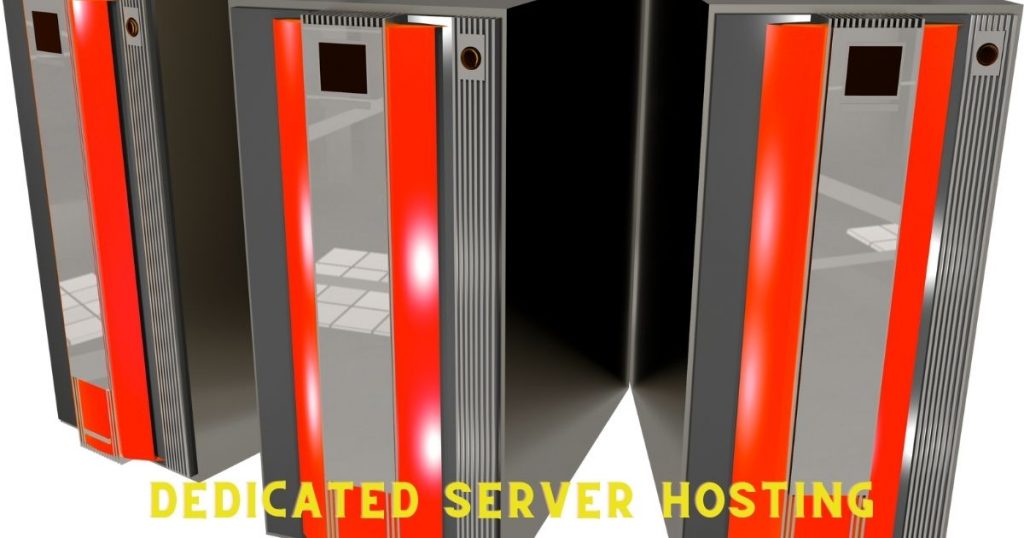Last updated on: 5 months ago
Key Takeaways
- Definition: Web hosting is a service that stores your website’s files on a server, making it accessible on the internet.
- Critical Choice: Your host directly impacts your site’s speed, security, and SEO rankings.
- Main Types: The four primary hosting types are Shared (for beginners), VPS (for growing sites), Cloud (for scalability), and Dedicated (for high-traffic enterprises).
- Key Factors: Always evaluate performance (SSD, uptime), security (SSL, backups), customer support (24/7), and renewal pricing before you buy.
- 2025 Trends: AI-driven management, eco-friendly green hosting, and faster edge computing are shaping the future of hosting.
What is Web Hosting?
Web hosting is a service that lets you publish your website online to make it accessible to people. When you sign up for this service, your website uses rented storage on a server to store all its files and data. In other words, web hosting is actually renting or buying space to house a website on the internet or world wide web. Website content files need to be housed on a server to be viewed online.
A server is a computing machine where your web hosting service provider stores the files and databases needed for your website. When a user tries to visit your website by entering your web address (domain name) in the browser, the domain name points him to the files stored in the webserver and then they can view your website.
Why is Choosing the Right Web Host So Important?
Many beginners treat web hosting as a simple commodity. This is a critical error. Your choice of host is a foundational decision that directly impacts your success.
Choosing a web hosting service can feel overwhelming. You’re hit with a barrage of technical terms while trying to answer a single, vital question: “Which one is right for my website?” Industry research shows the global web hosting market is projected to reach over $395 billion by 2030, a testament to how critical this decision is for millions of creators and businesses.
Getting this choice wrong can lead to a slow website, frustrating downtime, and poor security. But getting it right sets your website on a foundation built for speed, reliability, and growth.
This guide will demystify the entire process. We will walk you through everything from the absolute basics to the cutting-edge trends, helping you choose the perfect service for your specific needs with confidence.
- Website Speed & User Experience: According to studies referenced by Google, if a page load time increases from 1 second to 3 seconds, the probability of a visitor bouncing increases by 32%. A good host provides the high-performance hardware for lightning-fast speeds.
- Search Engine Optimization (SEO): Google explicitly uses site speed as a ranking factor. A faster website can lead to better rankings and more traffic.
- Security: A reputable web host is your first line of defense against cyber threats. A security breach can destroy your reputation and be costly to fix.
- Reliability & Uptime: An unreliable host means your website is invisible to potential customers. The industry standard is 99.9% uptime, which means less than 45 minutes of downtime per month.
What are the Current Web Hosting Trends for 2025?
The hosting industry is constantly evolving. To make a future-proof choice, it’s essential to be aware of these key trends:
- AI Integration: Artificial intelligence is being used to automatically monitor server performance, predict potential issues, and optimize security in real-time. This means more stable and secure hosting with less manual intervention.
- Green Hosting: With data centers consuming vast amounts of energy, there is a growing demand for eco-friendly “green hosting.” These providers power their operations using renewable energy, appealing to environmentally conscious businesses and customers.
- Edge Computing & CDNs: To deliver content faster globally, hosts are increasingly using edge computing. This involves processing data closer to the end-user via a robust Content Delivery Network (CDN), significantly reducing latency.
How Do I Choose a Web Hosting Service? A Step-by-Step Guide
There are few things to see as mentioned below to ensure you make the right choice.
- Evaluate Performance and Speed: Always look for hosts that use Solid State Drives (SSD), which are far faster than traditional HDDs. Check for an uptime guarantee of at least 99.9% and see if a free Content Delivery Network (CDN) is included.
- Scrutinize the Security Features: A non-negotiable feature is a free SSL certificate. Also, confirm the host provides a web application firewall (WAF), automatic malware scanning, and regular backups.
- Test the Customer Support: Before you buy, try contacting their support via live chat. Is the response fast and helpful? Good support is invaluable when you encounter an issue. Look for 24/7 availability.
- Understand the Pricing: Look beyond the low introductory price. Find the renewal price, as it’s often 2-3 times higher. This transparency is crucial for long-term budgeting.
- Check for Scalability: Ensure the provider makes it easy to upgrade your plan (e.g., from Shared to VPS) as your website grows.
Pro Tip: Don’t be swayed by “unlimited” everything. These offers on cheap shared plans always have fair use policies. Focus on the quality of the core features—speed, security, and support—over flashy marketing claims.
Types of Web Hosting Services
Now that you know how to evaluate a host, let’s break down the different types of hosting services available. Each type is designed for a different kind of user, with varying levels of performance, control, and cost.
1. Shared Web Hosting

In shared web hosting, your website shares the same server—and all its resources like RAM, CPU, and storage—with hundreds or even thousands of other websites.
It’s like renting a workstation in a busy co-working office. You get access to all the essential facilities like the internet, printers, and a desk, but you share them with everyone else. This makes it incredibly cost-effective.
Shared hosting is the most popular and affordable type of web hosting, making it the perfect entry point for most new websites. Providers make it incredibly easy to use by including tools like one-click installers for WordPress and intuitive control panels (like cPanel).
The primary drawback is performance. Since all resources are shared, a sudden traffic spike on another website on your server could temporarily slow down your own site. However, most providers have gotten very good at managing and isolating resources, so this is less of an issue than it used to be.
Shared Hosting at a Glance:
- Best For: Beginners, personal blogs, portfolios, and new small business websites.
- Pros: Most affordable option, easy to use, no technical skills required, includes helpful tools.
- Cons: Limited resources, performance can be affected by other sites, less control over the server environment.
If you are just starting out, a shared hosting plan is almost always the right choice.
2. VPS (Virtual Private Server) Web Hosting

VPS web hosting is the next logical step up from shared hosting. With VPS, you are still sharing a physical server with other users, but the server is partitioned into several powerful, independent virtual machines.
Your website is hosted in its own dedicated virtual space. This means you get a guaranteed allocation of resources (RAM, CPU, storage) that you do not have to share with anyone.
Think of it as upgrading from a co-working desk to your own private office in a larger office building. You still share the building’s main infrastructure, but your office space and its resources are entirely your own.
This setup provides significantly better performance and stability than shared hosting. It’s an excellent choice for websites that have outgrown their shared plan or require more control and customization without the high cost of a dedicated server.
VPS Hosting at a Glance:
- Best For: Growing websites, online stores, and businesses with medium-level traffic.
- Pros: Guaranteed server resources, better performance and security than shared hosting, more control and customization options.
- Cons: More expensive than shared hosting, requires some technical knowledge to manage (unless you get a Managed VPS plan).
When your shared hosting plan starts to feel slow due to increased traffic, it’s time to consider a VPS.
3. Dedicated Server Hosting

Dedicated web hosting is the pinnacle of hosting performance and control. When you opt for dedicated hosting, you are renting an entire physical server for your exclusive use. You do not share it with anyone.
This is like owning the entire office building. You have complete control over every aspect of the property. You can configure the server environment, install any software you want, and implement custom security protocols.
This level of control comes with two major considerations: cost and responsibility. Dedicated servers are the most expensive hosting option. You are also fully responsible for managing the server, including software updates, security patches, and maintenance, unless you pay extra for a managed service.
This type of hosting is reserved for large businesses, high-traffic e-commerce stores, and applications that have extremely demanding performance and security requirements.
Dedicated Hosting at a Glance:
- Best For: Large enterprises, high-traffic websites, and applications requiring maximum control and security.
- Pros: Exclusive use of all server resources, maximum performance and reliability, full control over server configuration, enhanced security.
- Cons: Very expensive, requires advanced technical expertise to manage.
4. Cloud Hosting

Cloud hosting is a more modern and flexible approach. Instead of your website residing on a single server, it uses a cluster of interconnected servers that work together as one. Your files and resources are distributed across this “cloud.”
The key advantage of cloud hosting is its exceptional reliability and scalability. If one server in the cluster fails, others instantly pick up the slack, ensuring your website stays online. This results in superior uptime.
Furthermore, cloud hosting is incredibly scalable. If your website experiences a sudden surge in traffic (for example, from a viral marketing campaign), the cloud infrastructure can instantly allocate more resources to handle the load. When the traffic subsides, it scales back down. This “pay for what you use” model can be very cost-effective for businesses with fluctuating traffic.
Cloud Hosting at a Glance:
- Best For: Businesses of all sizes, e-commerce sites, and websites where uptime and scalability are top priorities.
- Pros: Extremely high uptime and reliability, seamlessly scalable resources, pay-for-use pricing model, excellent performance.
- Cons: Pricing can be less predictable than fixed-rate plans, some configurations can be complex.
For businesses that cannot afford any downtime, cloud hosting is an outstanding choice. See which providers lead the pack in our guide to the best cloud hosting solutions. [Link to your Cloud Hosting Review article]
5. Managed Web Hosting

Managed hosting is not a type of hosting itself, but rather a layer of service that can be applied to VPS, Dedicated, or Cloud hosting plans.
With a managed hosting plan, the hosting provider takes on the role of your system administrator. They handle all the technical housekeeping tasks for you, including:
- Server setup and configuration
- Software updates and security patches
- Performance monitoring and optimization
- Regular data backups
- 24/7 technical support
Some of the popular managed hosting services are :
Managed VPS Hosting
VPS hosting requires proper configuration, parches, updates, and maintenance. A web hosting company becomes a system administrator for you and takes care of these housekeeping tasks for an extra fee. It is best for growing online businesses that don’t want to hire IT staff.
Managed WordPress Hosting
WordPress is the most popular CMS (content management system). Also, WordPress websites need a certain degree of maintenance.
Managed WordPress hosting service provides:
- High WordPress website performance
- Regular plugins and theme updates
- Security patches and version updates
- Website backups
Managed hosting is perfect for business owners who want the power of a VPS or dedicated server without the headache of managing it themselves, allowing them to focus on running their business.
Managed Hosting at a Glance:
- Best For: Non-technical users, small business owners, and anyone who wants a hands-off, premium hosting experience.
- Pros: Hassle-free management, expert support, enhanced security and performance, peace of mind.
- Cons: Significantly more expensive than unmanaged plans.
Since most web hosting service providers efficiently rebalance their shared resources, so in case of sudden spikes in traffic, any website using up all the resources is a very rare scenario. But still, it’s something you need to keep in mind
Colocation

This hosting service is for enterprises or businesses who want to have their own in-house servers for their websites to have full control over everything regarding the Server.
But the cost of having in-house servers and keeping them for services is very steep. Colocation hosting service is the best solution for businesses that want their own in-house servers.
So, instead of keeping servers in-house, you may co-locate your equipment by renting space in a colocation center. The colocation center will provide the power, bandwidth, IP address, and cooling systems that your server requires.
Colocation provides higher levels of bandwidth than a normal office server room at a comparatively much lower cost.
Colocation is a popular alternative to hosting an in-house data center or renting a dedicated server.
Smaller websites also can reap the benefit, from managed offerings since they lack in-house IT resources and expertise to manage them.
Reseller Hosting

Reseller hosting is a form of web hosting that allows the account holder to use allocated disk space and bandwidth to host a website on behalf of a third party. In this case, the original owner of the hosting account is the “reseller”. Useful when the storage space you have purchased is not needed and some of the allocated resources can be shared with another party. You can share disk space, bandwidth, CPU, etc creating a recurring source of income.
Hosting providers offer special reseller hosting plans to assist entrepreneurs interested in this business practice. Buying a reseller hosting plan is also helpful for anyone with multiple domains. You can create your own hosting plans for your websites, or your customers.
Conclusion: Your Path to the Perfect Host
You are now equipped with the knowledge to make an informed and confident decision about your web hosting service. You understand the fundamental technology, the critical factors to evaluate, and the distinct advantages of each hosting type.
The journey to choosing the right host always begins with a clear understanding of your own needs.
- If you are a beginner starting a personal blog, a portfolio, or a new small business website, the affordability and simplicity of a Shared Hosting plan is the undisputed best place to start.
- If your website is growing and your shared plan is no longer keeping up, a VPS Hosting plan offers the perfect balance of performance, control, and price.
- If uptime and scalability are your absolute top priorities, and you need to handle fluctuating traffic with ease, then Cloud Hosting is your most reliable option.
The key is to choose a provider that not only meets your current needs but also gives you a clear path to grow in the future. Now, go forward and build your website on a foundation destined for success.
Frequently Asked Questions (FAQ)
1. Can I host a website for free?
While free hosting services exist, they are not recommended for any serious project. They are often slow, unreliable, filled with ads, have severe limitations, and offer no customer support. A quality shared hosting plan is very affordable and a far better investment.
2. What is the difference between a domain name and web hosting?
A domain name is your website’s address (e.g., google.com). Web hosting is the space where your website’s files live. You need both to have a functioning website. Many hosts offer a free domain name for the first year when you purchase a hosting plan.
3. How much should I expect to pay for web hosting?
For beginners, a good shared hosting plan will typically cost between $2 to $10 per month for the introductory term. Remember to check the renewal rate, which will be higher.
4. What is cPanel?
cPanel is the most popular web hosting control panel. It provides a user-friendly graphical interface that makes it easy to manage your website, files, databases, email accounts, and more, without needing to use command-line tools.
Please provide your feedback for the article in the comment section below.
And in case you are interested in affiliate marketing then take a look at my article on affiliate marketing for beginners.


